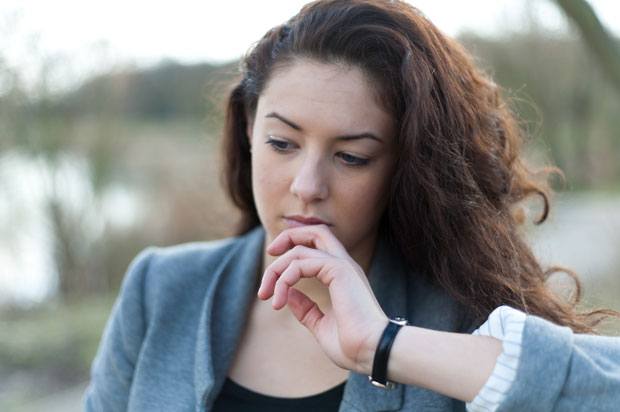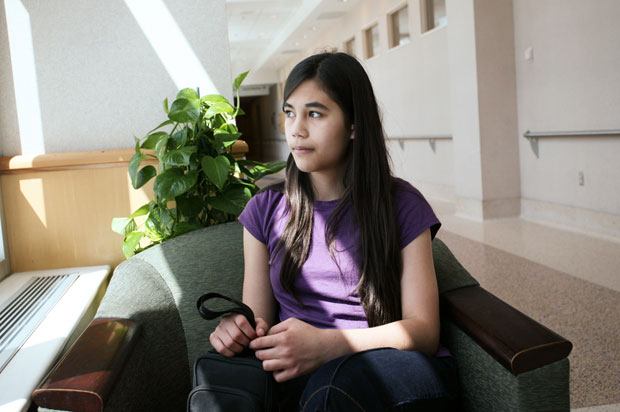Recovering after an abortion
What happens to your body after an abortion and what are the warning signs to look out for if you've got an infection? The Mix looks at the physical and emotional symptoms you may experience.

Take care of yourself in the following days.
Afterwards
You may feel scared and confused about how you’re going to feel after an abortion. Many women recover quickly and find deciding to stop the pregnancy was the right choice. Others may just want to get it over and done with but then find it hard to forget about afterwards. It’s important to remember that you have a right to your feelings, what ever they are, and that you can get help if you feel upset.
Bleeding
It’s likely that you will experience some bleeding for about 14 days after the abortion and have pains similar to period pains. You may also feel sick and have spotting up to your next period. Don’t worry if your periods take a while to settle down. “I wasn’t aware of the amount of bleeding I would have and how long I would be bleeding for afterwards,” says Amy, who had an abortion at 12 weeks. “Also, how much it would mess up my cycle.”
“If you’re soaking more than three sanitary towels per hour, or bleeding very heavily for a week, then you need to contact someone at the clinic or hospital,” says Lisa at Brook. “Avoid using tampons to deal with the bleeding and use sanitary towels instead. There’s no actual evidence to support that swimming will lead to infection, but it’s probably best to avoid this for around two weeks afterwards to prevent that risk. It’s also best to not have sex for two weeks.”
You should go back to your doctor (GP) around two to three weeks after the abortion to make sure that everything is OK. If you haven’t done this already, this would be a good time to talk about what contraception is available to you to avoid another unwanted pregnancy. If there’s anything you’re worried about immediately after your abortion, speak to a nurse or make an appointment straight away. One of the most important things you can do is complete the course of antibiotics you’re given to prevent against any infection.
Go back to your doctor if you have:
- Lasting or severe pain and cramps that don’t subside, even with painkillers;
- Discoloured or smelly discharge;
- Abnormal tenderness of the breasts and sickness two weeks after the abortion;
- Frequent passing of large clots;
- A high temperature;
- Continuous and heavy bleeding for more than two days afterwards.
Are there any risks?
- There’s no evidence to say that having an abortion, or more than one, will affect your fertility. There are risks associated with abortion, relating to which method you’ve had, and these will be explained to you by your doctor.
- Infection is the most common risk of abortion and if that’s not dealt with could lead to future problems with your fertility, in the same way that it could if you had an untreated STI.
- A very small percentage of women will experience a missed abortion. Marie Stopes Centres, for example, say the risk is less than 1 in 10,000 abortions. If you are still experiencing pregnancy symptoms three weeks after your abortion, go back and see your doctor.
- There is the possibility that a piece of tissue from the foetus may be left in the uterus. This can cause pain and may lead to infection, in which case a repeat procedure may be needed.
Post-abortion feelings
Dealing with having an abortion can result in an array of emotions – every one is different.
If you are feeling low, or it’s affecting your relationships and general wellbeing, it’s important you speak to someone you can confide in. “Certain physical things shocked me about having an abortion,” says Amy. “I remember coming round afterwards and wondering what I was doing there and what had happened. The hardest thing for me to grasp was that I went in with a baby that had been in me for 12 weeks and came out of the same room without a baby in me. How could my baby have gone, just like that, in a matter of minutes? I didn’t get to say goodbye and I wasn’t prepared with how to get to grips with it afterwards.”
You should be offered a free counselling session after an abortion. Some of the larger service providers will let you take up this session up to a year after the procedure. You can also go to your doctor or a nurse, and they can refer you for counselling on the NHS.
“Most women don’t experience serious feelings of regret or grief after an abortion,” says Rebecca at FPA. “When they do it’s normally about the situation of how the abortion took place; perhaps they wanted to carry on with the pregnancy and they couldn’t because of personal situations. The important thing is not to suffer in silence and to ask for help if you need it.”
Not all abortion counselling services are the same
‘Some counselling services are run and financed by groups that oppose abortion and their aim is to stop you from having an abortion,” says Rebecca. “If you feel that something isn’t right about the information that you are receiving then think about going somewhere else for advice.”
Photo of thoughtful girl by Shutterstock
Next Steps
- Brook provides free sexual health and wellbeing services for young people in the UK. Brook's services include local clinics and online digital sex and relationships tool.
- Chat about this subject on our Discussion Boards.
- Need help but confused where to go locally? Download our StepFinder iPhone app to find local support services quickly.
By Julia Pearlman
Updated on 02-Dec-2015
No featured article














